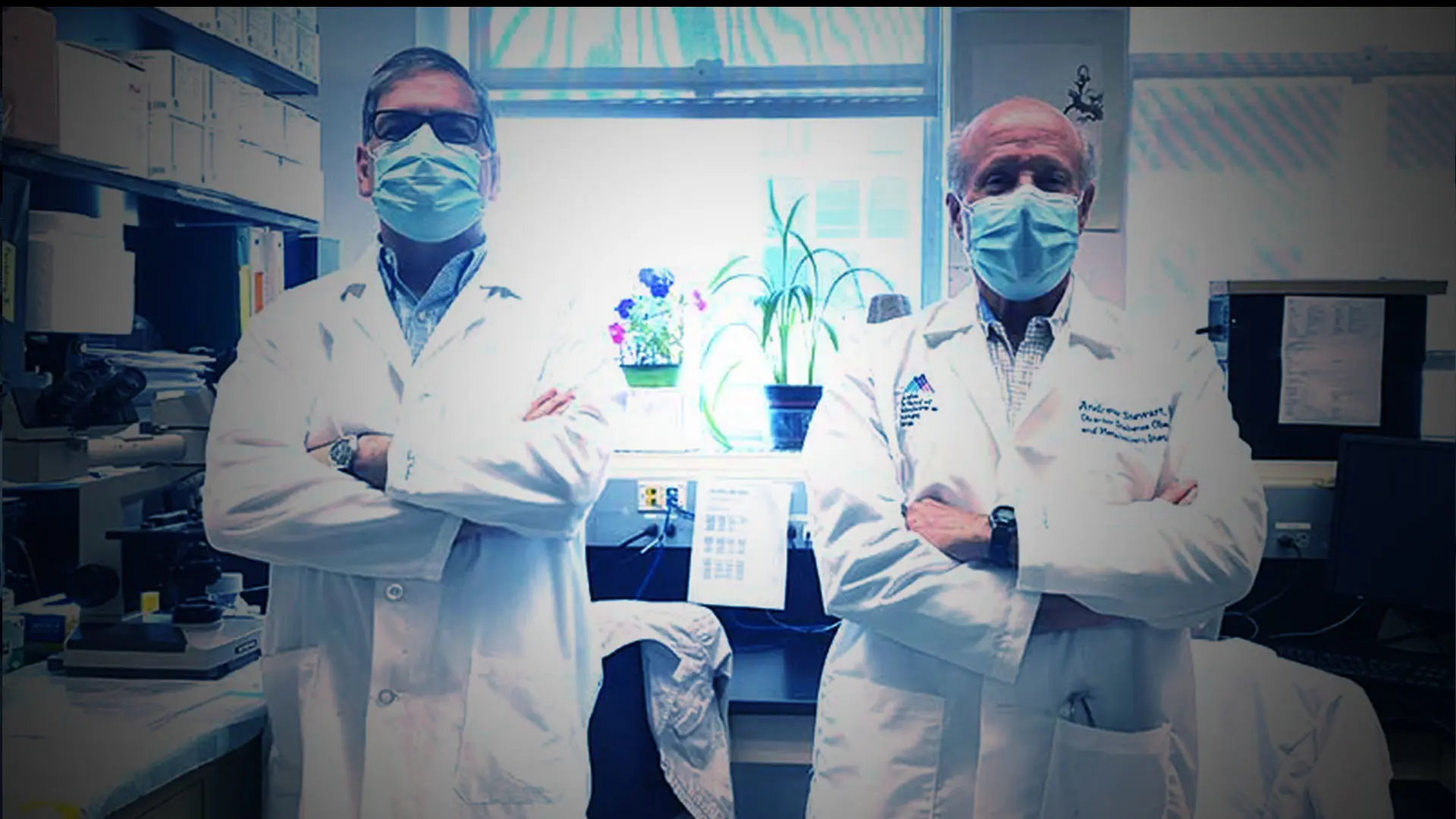Mount Sinai researchers are pursuing the regeneration of insulin-producing beta cells that could lead to novel drugs for patients with diabetes, supported by a $2.5 million, four-year grant from the National Institute of Diabetes and Digestive and Kidney Diseases. The principal investigator of the grant is Andrew F. Stewart, MD, Director of the Diabetes, Obesity and Metabolism Institute, and Irene and Dr. Arthur M. Fishberg Professor of Medicine at the Icahn School of Medicine at Mount Sinai.
Dr. Stewart’s team in 2015 identified the first potent human beta cell regenerative drug, harmine, which is in a class of drugs called DYRK1A inhibitors. They identified additional drugs that enhance the regenerative capabilities of harmine—TGF beta inhibitors in 2019, and GLP-1 receptor agonists in 2020. The grant will support new efforts to develop a means to deliver these drugs precisely.
“These drugs clearly are effective but also have the potential to cause unwanted effects outside the beta cell, so we now need a way to target the beta cell regenerative drugs to the beta cell,” says Dr. Stewart. Potential strategies for delivering these drugs include attaching them to a GLP-1 receptor agonist or a monoclonal antibody.
The current project is a collaboration among Dr. Stewart; Adolfo García-Ocaña, PhD, Professor of Medicine (Endocrinology, Diabetes and Bone Disease); Robert J. DeVita, PhD, Research Professor of Pharmacological Sciences, and Director of the Medicinal Chemistry Core of the Drug Discovery Institute; and Thomas Moran, PhD, Professor of Microbiology, and Director of the Center for Therapeutic Antibody Development.
The research has four aims: First, Dr. DeVita and his team are making TGF beta inhibitors that can be linked to other molecules targeting beta cells. Second, Dr. Moran is focused on making one such molecule, a monoclonal antibody, which can deliver the drugs to beta cells. Third, Dr. Stewart and Dr. DeVita will conjugate the drugs with the delivery methods to investigate which combinations work the best. And fourth, Dr. García-Ocaña will test the therapies on human beta cells in mice.
“We are excited about these collaborative and translational studies that link basic laboratory research with the ultimate goal of treating patients. For the first time, we have a series of new molecules that could be effective for both major forms of diabetes,” Dr. DeVita says. “If successful, a new targeted molecule could be scaled up in the future for further drug development, with the potential to treat millions of people around the world.”
Dr. Stewart is the site principal investigator for another grant for the study of diabetes, obesity, and other metabolic disorders, which was recently renewed by the National Institutes of Health. That five-year, $9.5 million grant was awarded to support the Einstein-Mount Sinai Diabetes Research Center, a regional collaborative led by Jeffrey Pessin, PhD, the Judy R. and Alfred A. Rosenberg Professorial Chair in Diabetes Research at the Albert Einstein College of Medicine and principal investigator on the grant.
The Center was founded in 1976 and has long focused its efforts on minority and other underserved populations in the region. Five years ago, it expanded into a regional collaborative, partnering with Mount Sinai to increase its capacity to support research studies and services. “The idea of these center grants is to have a series of cores that allow us to help people who are doing research, to do it faster, better, and more cost-efficiently,” Dr. Stewart says. For example, at Mount Sinai a core providing expertise in immune technology is led by Dirk Homann, MD, Professor of Medicine (Endocrinology, Diabetes and Bone Disease); and a human islet adenovirus core is led by Dr. García-Ocaña.
“The Center has provided a major boost to basic science and clinical diabetes and obesity research and training efforts at both Mount Sinai, Albert Einstein College of Medicine, and multiple other medical schools in the greater New York region,” Dr. Stewart says. “The Einstein team has been an extraordinary scientific partner.”
Question of the Year:
What was the most significant development in your field in 2020?
There are so many events and discoveries that have had an amazing impact on diabetes, obesity, and metabolism in 2020. It is impossible to pick just one.
As we enter 2021, the 100th anniversary of the discovery of insulin, we now have widespread use of artificial pancreas systems; multiple classes of human beta cell regenerative drugs for type 1 and type 2 diabetes; a dramatically deeper understanding of how diabetes affects the entire human genome; a number of promising therapeutic approaches to reversing or controlling autoimmunity in type 1 diabetes; advanced delivery systems for insulin and new “smart” insulins; highly effective bariatric surgery for obesity and diabetes; and a panoply of newly approved diabetes drugs, some of which reduce cardiac complications through unexpected mechanisms, even further than existing diabetes drugs.
And this is just a partial list. It has been an amazing year!
- Andrew F. Stewart, MD
Featured
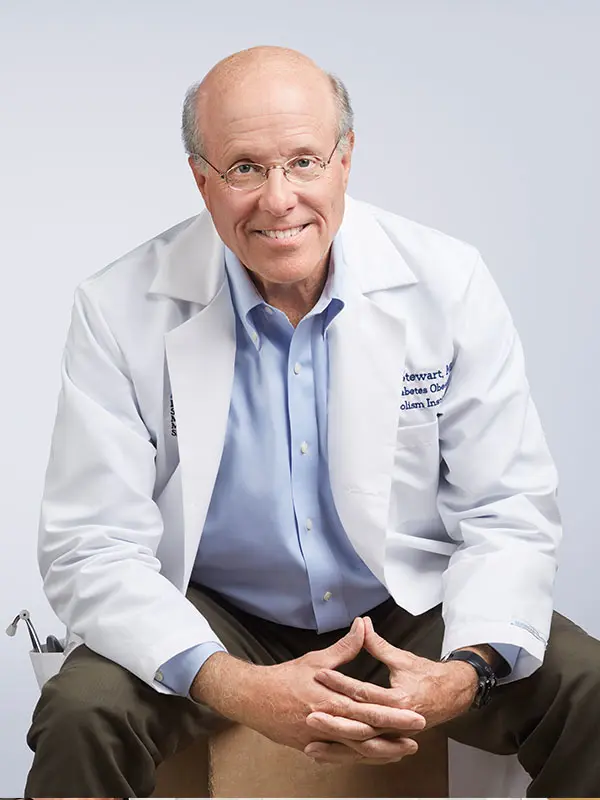
Andrew F. Stewart, MD
Director of the Diabetes, Obesity and Metabolism Institute, and Irene and Dr. Arthur M. Fishberg Professor of Medicine
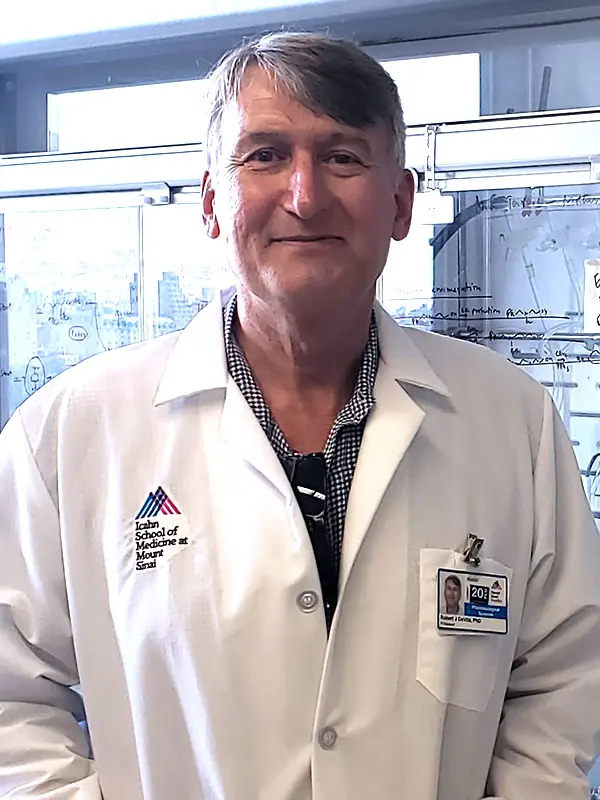
Robert J. DeVita, PhD
Professor of Pharmacological Sciences, and Director of the Medicinal Chemistry Core of the Drug Discovery Institute
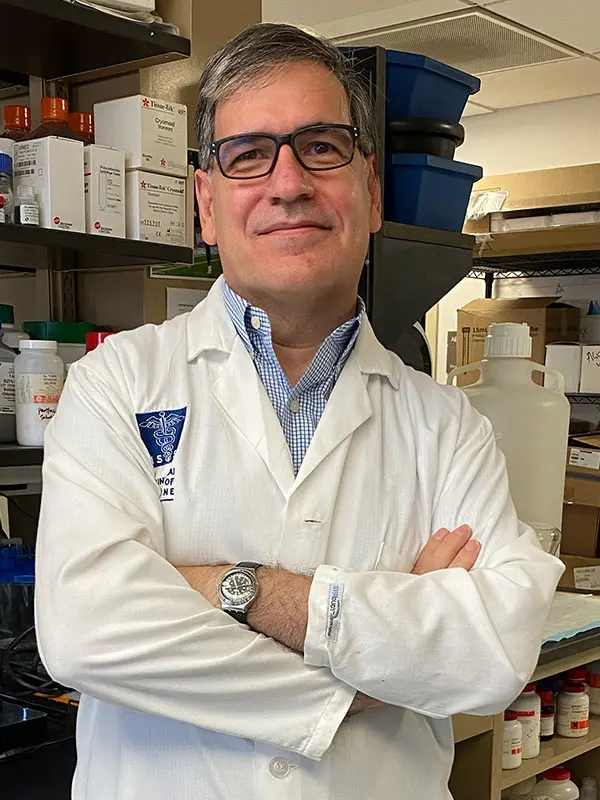
Adolfo García-Ocaña, PhD
Professor of Medicine (Endocrinology, Diabetes and Bone Disease)
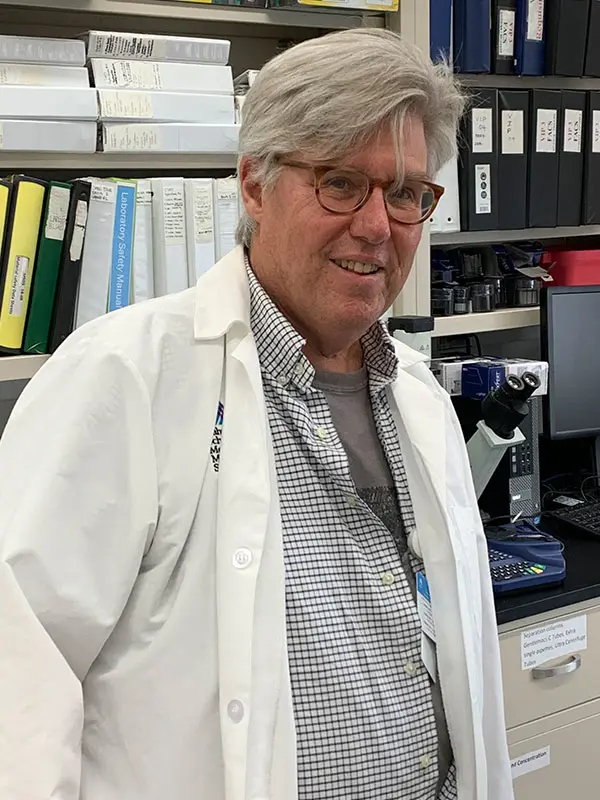
Thomas Moran, PhD
Professor of Microbiology, and Director of the Center for Therapeutic Antibody Development
